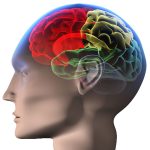When a traumatic brain injury occurs, the injured person may experience physical, cognitive, or behavioral effects. Symptoms are dependent on whether the injury is localized or widespread, the severity of the injury, and the part(s) of the brain that are affected.
Mild, Moderate, and Severe TBI
With mild TBI, a person may remain conscious or may lose consciousness for a few seconds or minutes. Outside of losing consciousness, other symptoms may not be present or noticed at the time of the ...
More




